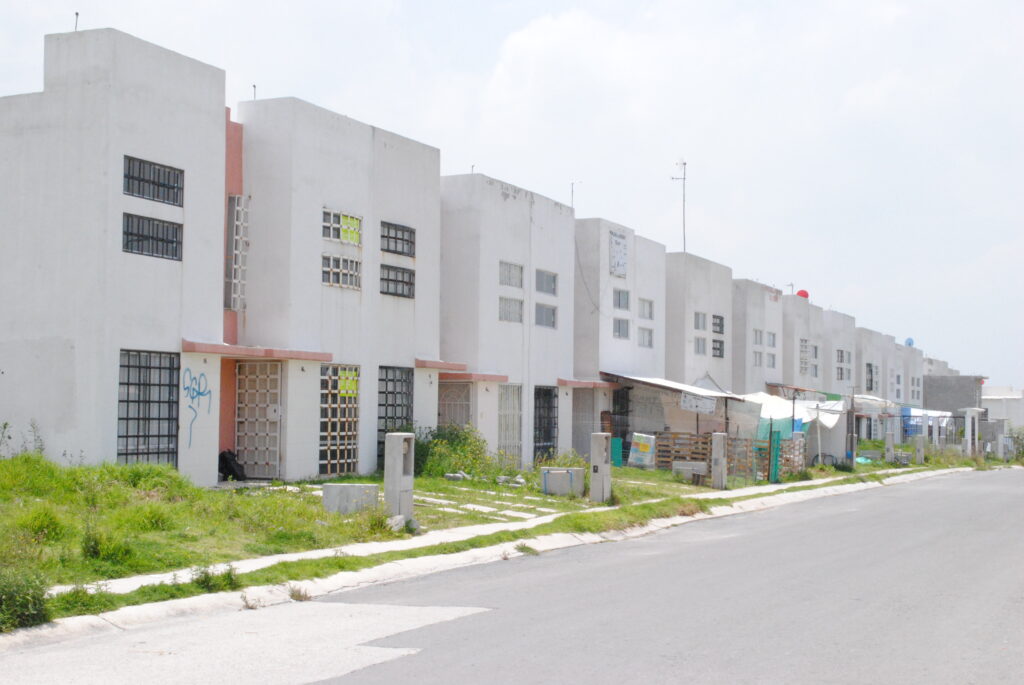Organized by the Latin American Cities Working Group (student group supported by GMS) and Terra Infirma Working Group (supported by the Townsend Center)
This talk provides a brief overview of the living conditions found in conjuntos urbanos in Mexico City and the Metropolitan Area, and the social and economic problems that they engender. These housing developments represent a new mode of producing space inspired by the Chilean experiment with social housing. Conjuntos urbanos were introduced in the 1990s along with other policies meant to make housing available to the working class. Today they are built by private developers with subsidies from the Federal Government and through other sophisticated financing mechanisms. The talk will focus on two conjuntos urbanos: Santa Teresa IX and Hacienda Las Misiones. I use excerpts from interviews, field observations, photographic evidence, and Mexican census data to illustrate some points about life in conjuntos urbanos. Using these data, I develop a concept that can help us understand how people are able to inhabit conjuntos urbanos, where precarious living conditions complicate the practice of everyday life. Drawing from “peripheral urbanization,” a term proposed by Caldeira (2018), I develop the notion of the “politics of un-becoming” as a means to understand how the residents of conjuntos urbanos disassemble and reassemble their dreams and expectations in order to accommodate them within their new reality.
Francisco Trejo Morales is a Ph.D student in the Department of Anthropology at the University of California, Berkeley. His work focuses on the different modes of producing housing that characterize urban development in Mexico City and the Metropolitan Area, and the ways in which they mediate desire, politics, and notions of belonging.

